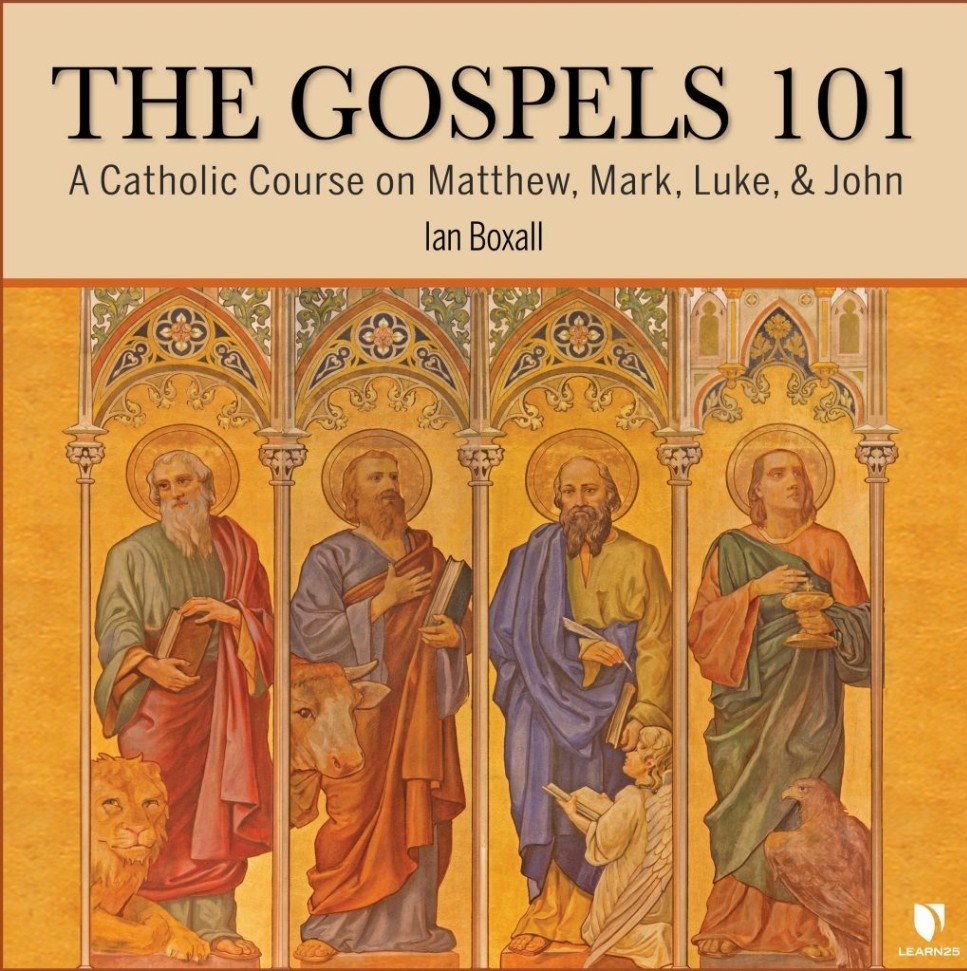#religion
#books
Gospels.
The Gospels, as the accounts of Jesus Christ’s life, teachings, death, and resurrection, are often misunderstood or misrepresented.
While the Gospels contain historical elements, they are not merely historical accounts intended to provide a biography of Jesus.
Instead, they are theological narratives that convey spiritual truths, the identity of Jesus as the Messiah, and the implications of His teachings for humanity.
The Gospel of John emphasizes the divinity of Christ more than the others, starting with the profound declaration, “In the beginning was the Word, and the Word was with God, and the Word was God” (John 1:1).
This signifies that the Gospel is as much about understanding Jesus’ divine nature as it is about recounting events.
Luke 1:1-4 highlights this purpose, stating that the author aims to provide an orderly account of the events concerning Jesus for a better understanding of the faith.
The Gospels are often reduced to simple moral stories or lessons.
However, they are much more profound, revealing the nature of God’s kingdom and the radical call to discipleship.
The teachings of Jesus challenge readers to transformation and a relationship with God rather than just moral behavior.
The parables of Jesus, such as the Good Samaritan (Luke 10:25-37), illustrate deeper truths about mercy, love, and the nature of neighborliness rather than serving solely as ethical guides.
Matthew 5:17-20 indicates that Jesus came not to abolish the Law but to fulfill it, showing that His teachings go beyond simple morality to a fulfillment of God’s plan for salvation.
The Gospels do not provide a complete account of every aspect of Jesus’ life or ministry.
They are selective in their content, focusing on specific events and teachings that reveal who Jesus is and what He came to accomplish.
Each Gospel offers a unique perspective and emphasizes different aspects of His ministry.
The Synoptic Gospels (Matthew, Mark, and Luke) share many similarities, yet each highlights different events and teachings, while John’s Gospel takes a different approach with more theological reflections.
John 21:25 states,
“Now there are also many other things that Jesus did; were every one of them to be written, I suppose that the world itself could not contain the books that would be written.”
The Gospels are accessible to all believers, not just theologians or biblical scholars.
They are intended for anyone seeking to understand Jesus and His message, regardless of their background or education.
The teachings contained within are meant to be applied to daily life, fostering a personal relationship with Christ.
Jesus often spoke in parables that were relatable to common people, indicating that His teachings were meant to be understood and lived out by everyone, not just an intellectual elite.
Matthew 11:25-26 reveals Jesus’ praise for the simplicity of faith:
“I thank you, Father, Lord of heaven and earth, that you have hidden these things from the wise and understanding and revealed them to little children.”
The Gospels should not be seen as conflicting accounts but as complementary narratives that together provide a fuller picture of Jesus’ life and mission.
Each Gospel reflects its author’s perspective and audience but remains consistent in the core message of the Christian faith.
The resurrection accounts differ in detail but converge on the essential truth that Jesus rose from the dead, affirming the foundational belief of Christianity.
Acts 1:1-3 underscores the unity of purpose in the Gospel writings:
“In the first book, O Theophilus, I have dealt with all that Jesus began to do and teach until the day when he was taken up.”
The Gospels are not merely texts to be studied; they are meant to inspire faith and action.
The ultimate goal of engaging with the Gospels is to encounter Jesus Christ, to grow in relationship with Him, and to live out His teachings in the world.
The Great Commission (Matthew 28:19-20) emphasizes the call to go forth and make disciples, indicating that the message of the Gospels is meant to be shared and lived out in community.
James 1:22 states,
“But be doers of the word, and not hearers only, deceiving yourselves.”
The Gospels should not be viewed as mere compilations of sayings and teachings of Jesus without context.
Each Gospel is carefully crafted with a specific narrative structure and purpose, often arranged to convey a particular theological message.
The teachings of Jesus are presented within the framework of His life and mission, emphasizing their significance in the broader story of salvation.
The Sermon on the Mount (Matthew 5-7) is not just a collection of moral teachings; it is a foundational discourse that establishes the values of the Kingdom of God, showing how they relate to the Law and the prophetic tradition.
Matthew 7:28-29 notes the authority with which Jesus teaches, emphasizing that His teachings are part of a larger divine revelation:
“And when Jesus finished these sayings, the crowds were astonished at his teaching, for he was teaching them as one who had authority, and not as their scribes.”
While the Gospels engage with societal issues and can be applied to various contexts, they are not primarily political texts aimed at establishing political ideologies or agendas.
Instead, they focus on the Kingdom of God and the transformative message of Jesus, encouraging believers to live out their faith in a way that transcends political affiliations.
Jesus’ interaction with the Roman authorities (John 18:36) demonstrates that His mission is not about political power but about spiritual authority and the establishment of God’s Kingdom in the hearts of individuals.
John 6:15 indicates that Jesus withdrew from the crowd when they intended to make Him king, showing His mission’s spiritual focus rather than a political one:
“Perceiving then that they were about to come and take him by force to make him king, Jesus withdrew again to the mountain by himself.
The Gospels are not intended solely for Christians but also serve as invitations for all people to explore the life and teachings of Jesus.
They are open to those seeking spiritual truth, understanding, or a deeper connection with God, regardless of their current beliefs.
This universality reflects the Gospels’ message of God’s love for all humanity.
The presence of Gentiles in the Gospel narratives, such as the Magi visiting Jesus (Matthew 2:1-12), illustrates that the message of Christ transcends cultural and religious boundaries, inviting all to witness His glory.
John 3:16 captures this inclusive invitation:
“For God so loved the world, that he gave his only Son, that whoever believes in him should not perish but have eternal life.”
The Gospels are not static or outdated documents; they remain dynamic and relevant to contemporary issues and personal struggles.
Their teachings continue to challenge, inspire, and guide believers in their faith journeys, adapting to the changing contexts of human life while maintaining their core truths.
Many modern theologians and believers engage with the Gospels to address current social justice issues, such as poverty and inequality, drawing from Jesus’ teachings to inspire action and advocacy.
Hebrews 4:12 states,
“For the word of God is living and active, sharper than any two-edged sword,” indicating that the messages within the Gospels are not confined to the past but speak powerfully to the present.
The Gospels should not be viewed as mere propaganda designed to promote Christianity as a new religion.
Instead, they are profound testimonies of faith written by individuals who encountered Jesus and sought to communicate His message and mission authentically.
The Gospels present a radical new understanding of God’s relationship with humanity, but they do so as a fulfillment of the existing Jewish faith rather than as a mere attempt to convert others.
Jesus’ teachings frequently reference Jewish law and prophecy, showing continuity with the Jewish tradition rather than presenting a departure from it.
His interpretation of the Law in the Sermon on the Mount recontextualizes it within the framework of love and mercy.
Matthew 5:17 emphasizes Jesus’ role in fulfilling the Law:
“Do not think that I have come to abolish the Law or the Prophets; I have not come to abolish them but to fulfill them.”
The Gospels should not be perceived as a checklist of rules to follow for salvation or righteousness.
While they do contain moral teachings, they emphasize a relationship with Jesus and an internal transformation of the heart rather than mere external compliance to a set of regulations.
In the Gospel of Mark (12:30-31), Jesus summarizes the Law as loving God and neighbor, indicating that true obedience comes from love rather than a rigid adherence to rules.
Romans 3:28 underscores this understanding:
“For we hold that one is justified by faith apart from works of the Law,” highlighting that faith and relationship with God are central to salvation.
The Gospels are not outdated or irrelevant to contemporary life.
Their teachings and messages remain applicable to the challenges, moral dilemmas, and spiritual questions faced by individuals today.
The principles found within the Gospels guide believers in navigating modern issues with wisdom and compassion.
Jesus’ parable of the Good Samaritan (Luke 10:25-37) continues to resonate in discussions of social justice, racial reconciliation, and the call to love one’s neighbor, regardless of differences.
Hebrews 13:8 affirms the enduring relevance of Jesus:
“Jesus Christ is the same yesterday and today and forever,” indicating that His teachings continue to guide and inspire.
While the Gospels have historical value, they should not be seen as mere artifacts of the past.
They are living texts meant to engage readers spiritually and personally.
The Gospels invite believers into a transformative encounter with Christ, encouraging them to reflect on their faith and apply the teachings in their lives.
Many believers read the Gospels as part of their daily spiritual practice, seeking not only historical knowledge but also personal growth and deeper communion with God.
2 Timothy 3:16-17 emphasizes the transformative purpose of Scripture:
“All Scripture is breathed out by God and profitable for teaching, for reproof, for correction, and for training in righteousness, that the man of God may be complete, equipped for every good work.”
The Gospels are not solely focused on Jesus’ divine nature; they also emphasize His humanity and the fullness of His experience as a person living in the world.
Understanding both aspects is crucial for a well-rounded view of who Jesus is and how He relates to humanity.
The Gospel of Mark presents Jesus’ emotions, such as compassion (Mark 1:41) and sorrow (Mark 14:34), demonstrating His genuine human experience alongside His divine mission.
Philippians 2:6-7 speaks to this dual nature:
“Who, though he was in the form of God, did not count equality with God a thing to be grasped, but emptied himself, by taking the form of a servant, being born in the likenes
Gospels are profound theological works that call for a deep engagement with the person of Jesus Christ and His message.



